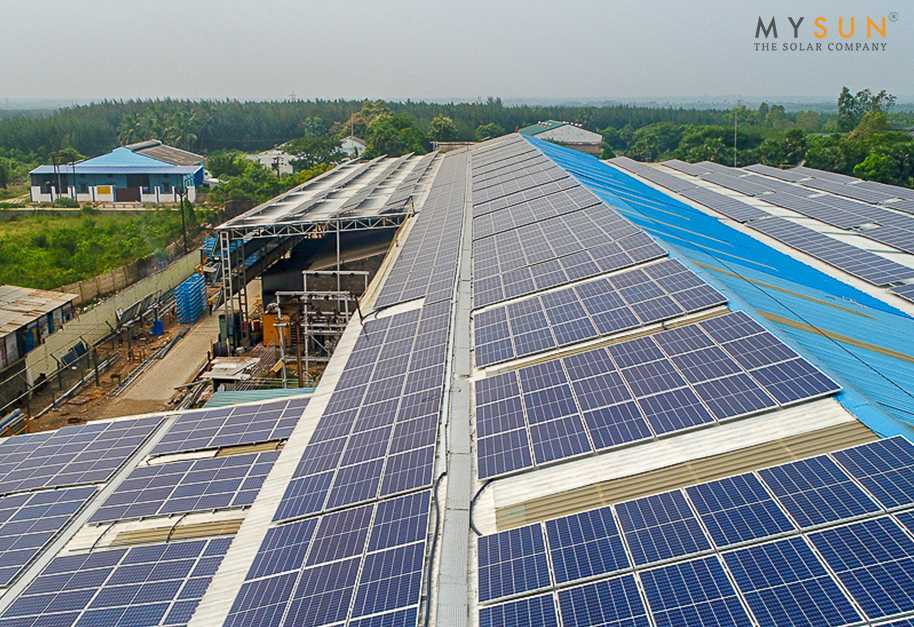Micro, small and medium enterprises (MSMEs) need policy consistency, awareness of the benefits of clean energy and a supportive regulatory environment to decarbonize and survive the challenges that come with energy transition and a climate-stressed world, says a new working paper by WRI India.
WRI India launched the working paper, titled ‘Analyzing the Policy Landscape for Supporting the Clean Energy Transition in Small and Medium Enterprises in India’ recently ahead of Micro, Small and Medium Enterprises (MSME) Day.
The paper assesses policies, schemes and programs introduced between 2010-2020 to spur clean energy transition among MSMEs. The study was presented during a webinar, which brought together policymakers, civil society and research organizations to discuss the policy and financial aspects required to enable energy transition among SMEs.
In India, the MSME sector plays a significant role in the economy, having contributed to around 29.15% in gross value added in the country’s gross domestic product in FY21-22. These businesses have significant energy consumption needs and are responsible for around 25% of overall energy consumption within the industrial sector.
The WRI working paper analyzes policies meant to encourage SMEs to adopt sustainable energy sources, uptake of energy efficient technologies, and resource efficiency by developing a quantitative and qualitative assessment framework that gauges their real-world impact. The study identifies existing gaps and offers suggestions to design policies that assist SMEs to switch to clean energy at a faster rate. The paper also examines state-level policies from five states, viz, Gujarat, Haryana, Himachal Pradesh, Rajasthan and Tamil Nadu.
Key findings
A small set of schemes explicitly focus on promoting the adoption of clean energy and energy-efficient technologies and practices through direct financial incentives, grants, or subsidies and technology upgrades. Nevertheless, considerable challenges such as lack of awareness exist, necessitating swift action to accelerate the uptake of clean energy solutions.
At the time of the study, MSMEs were focused on pandemic recovery efforts, which has slowed down the rate of clean energy adoption. This is further derailed with any reduction in subsidies or incentives meant for clean energy initiatives.
Integrating central schemes with state-specific initiatives improves adoption and leads to observable outcomes. The inverse is also true: schemes which are implemented solely at the state level see limited uptake.
A comprehensive framework that evaluates the effects and outcomes of the clean energy transition is an integral component of policy and scheme guidelines.
Recommendations
Following the paper launch, the panel delved into the need for a policy push required to transition towards clean energy, the public and private finance essential to make this happen against the current backdrop.
Speaking at the webinar, Sanjeev Chawla, additional development commissioner, MSME, Development and Facilitation Office, Karnal and Development and Facilitation Office, Ludhiana said, “For energy transition to be effective among MSMEs, the government is engaging with clusters. This will enable clusters to collectively invest in clean and efficient technologies thereby increase their savings and increase the uptake of clean technologies. Moreover, this will also reduce the transaction cost for the government.”
Manilal Chaudhary, regional manager Gurugram, Small Industries Development Bank of India, said, “Working closely with state government and nodal agencies at the SME cluster level would not only make it easier for lending institutions such as ours to reduce risks that come with lending to SMEs, but also make it easier for clusters to take advantage of government schemes in adopting the cleaner practices for sustainability.”
The informal nature of many MSMEs, particularly micro enterprises, face several obstacles from limited technical capabilities, financial constraints, everyday operational challenges, lack of information regarding existing policies, making it difficult for them to transition to clean technology. However, the sector’s carbon-intensive activities make decarbonization efforts essential to achieving India’s net zero emissions goals.
This content is protected by copyright and may not be reused. If you want to cooperate with us and would like to reuse some of our content, please contact: editors@pv-magazine.com.









By submitting this form you agree to pv magazine using your data for the purposes of publishing your comment.
Your personal data will only be disclosed or otherwise transmitted to third parties for the purposes of spam filtering or if this is necessary for technical maintenance of the website. Any other transfer to third parties will not take place unless this is justified on the basis of applicable data protection regulations or if pv magazine is legally obliged to do so.
You may revoke this consent at any time with effect for the future, in which case your personal data will be deleted immediately. Otherwise, your data will be deleted if pv magazine has processed your request or the purpose of data storage is fulfilled.
Further information on data privacy can be found in our Data Protection Policy.